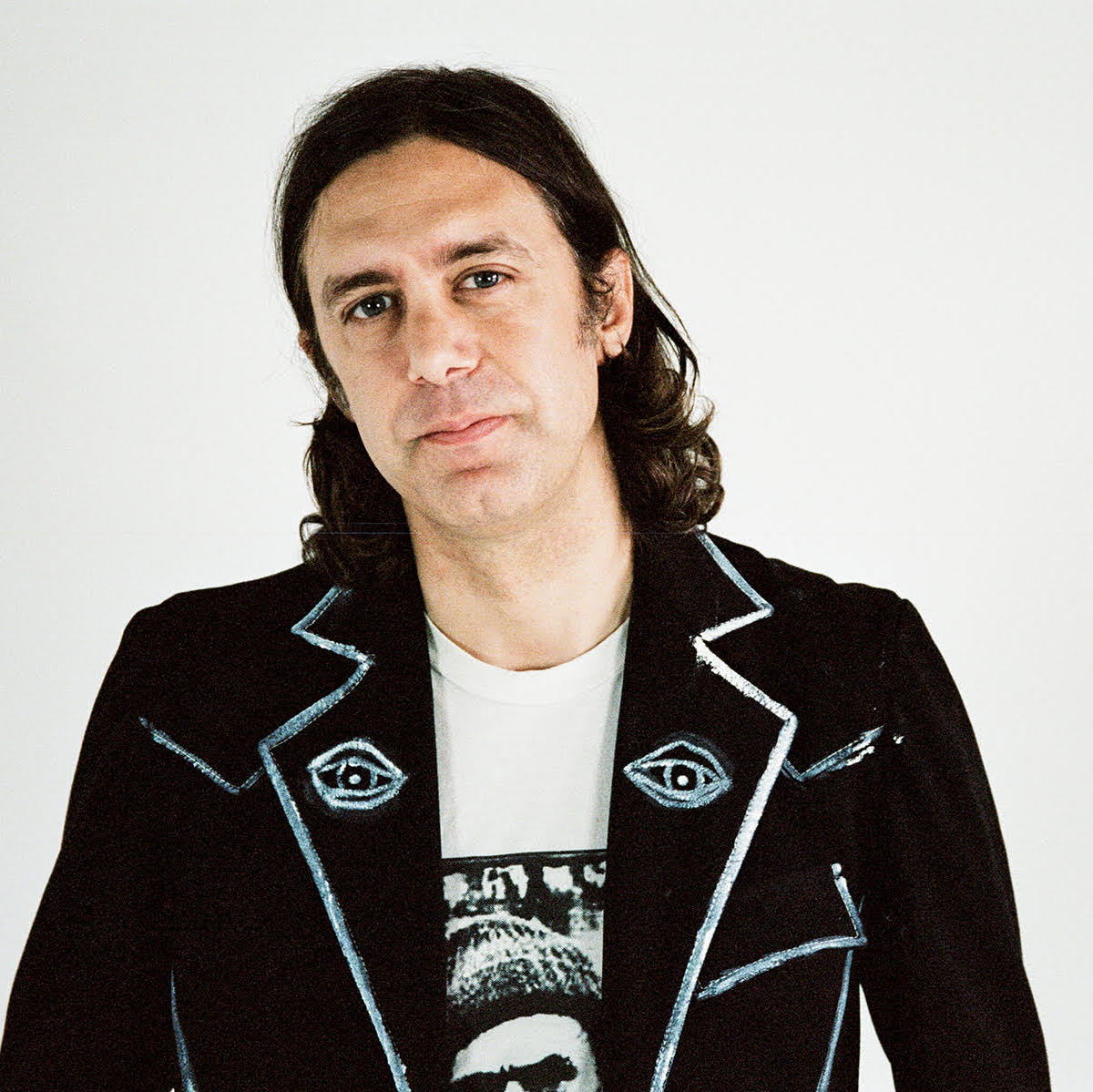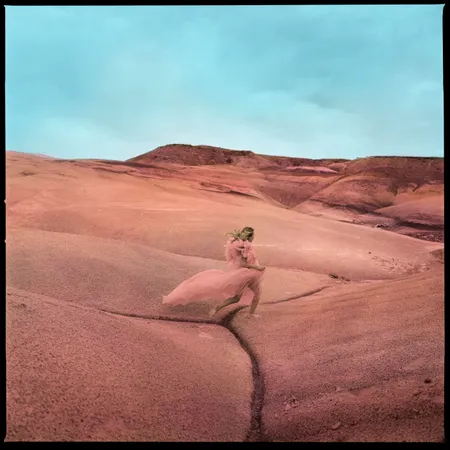Biography
“This is the kind of songwriting I’ve always been drawn to, ” says Jeremy Ivey. “The perpetual motion, the intricate melodies, the sprawling arrangements. This album is the real me.” Juxtaposing raw, unflinching personal reckonings with jaunty, buoyant performances and rich, kaleidoscopic production, Invisible Pictures, Ivey’s third album for ANTIRecords, is indeed a revelation. Though the songs are rooted in a 21st century swirl of chaos and uncertainty, the record is, at its core, an undeniably feel-good collection, one that refuses to surrender to the existential ache it so artfully captures. Instead, Ivey embraces the sheer, unmitigated joy of creative freedom and sonic exploration here, drawing on everything from flamenco and classical music to vintage indie rock and British Invasion tunes to craft a passionate, ...
“This is the kind of songwriting I’ve always been drawn to,” says Jeremy Ivey. “The perpetual motion, the intricate melodies, the sprawling arrangements. This album is the real me.” Juxtaposing raw, unflinching personal reckonings with jaunty, buoyant performances and rich, kaleidoscopic production, Invisible Pictures, Ivey’s third album for ANTIRecords, is indeed a revelation. Though the songs are rooted in a 21st century swirl of chaos and uncertainty, the record is, at its core, an undeniably feel-good collection, one that refuses to surrender to the existential ache it so artfully captures. Instead, Ivey embraces the sheer, unmitigated joy of creative freedom and sonic exploration here, drawing on everything from flamenco and classical music to vintage indie rock and British Invasion tunes to craft a passionate, transcendent album more reminiscent of John Lennon or Elliott Smith than anything coming out of Nashville these days. In fact, Ivey left Nashville altogether to complete work on the album, relocating to Los Angeles to finish things off with the help of legendary Smith collaborator Rob Schnapf. “When you sing a melody in your head, you can either put three chords around it or nine,” says Ivey, who plays one of Smith’s hollow-body guitars on the record. “This time, I aimed for nine.” Ivey’s never been one to shy away from a challenge. Born in San Antonio, he suffered a stroke and was diagnosed with cerebral palsy during infancy as a result of his birth mother’s battles with drug addiction. Doctors at the time said he would likely never learn to walk or talk, but Ivey proved them wrong, managing to become not only a gifted multi-instrumentalist, but a profoundly poetic writer, to boot. As a child, he was adopted into a strict Christian family, one that prohibited him from listening to popular music and kept him sheltered from much of the outside world through rigorous homeschooling. Understandably, questions about who he was (and who he was meant to be) dogged him throughout his adolescence, and as soon as he was old enough to set out on his own, Ivey hit the road in search of himself. For years he traveled the country, picking up work in kitchens and playing guitar to make ends meet. In Colorado, he lived in a tent; in Boston, he struggled with homelessness. Eventually, the road led to Nashville, where he began collaborating with (and eventually married) another searcher named Margo Price. “When I met Margo, she was working as a waitress in a bar,” recalls Ivey. “We were both stuck with these dead-end jobs and shared the same dream of getting out and traveling the world making music.” After years of sweating it out in the bars and honkytonks of Nashville, the pair finally experienced the breakout success they’d dreamed of in 2016, when Price’s critically acclaimed Midwest Farmer’s Daughter (largely co-written and recorded with Ivey) took the country world by storm. Ivey followed suit in 2019 with his own critically acclaimed solo debut, The Dream and The Dreamer, which NPR hailed as “modern, indie [and] super-cool” and Rolling Stone likened to “Mutations-era Beck.” Ivey’s 2020 follow-up, the pointed and timely Waiting Out The Storm, was similarly well-received, with The Nashville Scene declaring that it “deconstruct[s] the ills of the day—among them racism, xenophobia and the growing wealth gap—with a critic’s precision and a poet’s compassion.” By the time he began work on what would become Invisible Pictures, though, Ivey had shifted his gaze inwards, stepping away from the politically charged social commentary of Waiting Out The Storm to reflect on his own tumultuous journey. In just the past few years alone, he’d welcomed a daughter into the world, survived a particularly brutal bout of COVID, and watched the entire music industry slip into freefall. With touring off the table for more than a year, he decided stretch himself compositionally, returning to the complex, harmonically sophisticated music that had fascinated him in his younger years but had taken a backseat since his move to Nashville. “I started listening to a lot of Paco de Lucía and playing more nylon string guitar at home,” Ivey recalls. “I started using more passing tones in my writing, too, and then I’d make up chords to go along with those melodies, even if I didn’t know what it was that I was playing.” When it came time to record, Ivey continued to stretch himself, tapping celebrated producer Andrija Tokic and tasking him with assembling a band of players he’d never worked with before. While some of the musicians ran in similar circles to Ivey around Nashville, others, like jazz violinist Billy Contreras, were brand new to him, and the infusion of fresh, diverse collaborators only served to elevate the spirit of freedom and discovery already at play in the writing. “A whole lot of different people with a whole lot of different musical backgrounds came in and out of the studio while we were recording,” says Ivey. “When Andrija heard a sound in his head, he’d just go find the player who could make it happen.” The resulting artistic invigoration is easy to hear on Invisible Pictures, which balances lush orchestration and bold harmonic motion with a plainspoken delivery full of honest self-reflection and candid explorations of depression, identity, and belonging. The aching “Empty Game” mixes baroque instrumental passages with piercing lyrical insight as it struggles to find meaning in our hollow cycle of consumption and waste, while the tender “Trial By Fire” rises and falls on a dancing nylon string guitar as it pursues the inner peace that comes with accepting your truest self, and the bittersweet “Orphan Child” channels the gritty charm of ’60s pop as it reconciles with the pervasive sense of lostness that comes from simply being alive these days. “I’m an orphan honey / I’m a no-name nomad living in this great unknown,” Ivey sings over punchy guitars and a greasy B3. “Yes I’m an orphan but I’m better on my own.” Even at its weightiest moments, the album still manage to find glimmers of hope: the ominous “Black Mood,” for instance, reaches for mercy in the midst of a deep depression; the crisp “Phantom Limb” hints at early 2000s indie rock as it breaks free from an abusive relationship; and the bittersweet title track finds reasons to believe even in the wreckage of the Christmas Day bombing that rocked Nashville in 2020. “I try to put a little bit of hope into everything I do,” Ivey reflects. “No matter how heavy, no matter how dark things may get, there’s always a little bit of light shining through.” Take a listen to Invisible Pictures and you’ll see the light, too.





